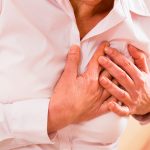Stress is a normal, unavoidable part of modern life, which all animals must cope with. Not all stress is a bad thing, and sometimes it can save your life. We’ve all heard of the “fight or flight” reaction, and this survival mechanism is a natural response to external stressors, helping us react quickly to a potentially dangerous situation.
We still rely on this ancient autonomous response to keep us safe these days, but we don’t need it as much as we did when it was imperative to our survival. In fact, we’ve dragged this archaic survival mechanism all the way with us through our evolution, to modern day scenarios, which for the extremely large majority of us, no longer involve the danger of being eaten alive.
The outdated stress response has become burdensome and actually physically damaging to our modern bodies. We, as animals, don’t cope very well with stress, and chronic stress kills.
It is estimated that more than 110 million people die each year as a direct result of stress, equaling 7 deaths every two seconds.
Stress can cause serious ailments like asthma, obesity, fatigue, irritability, lack of motivation and interest, headaches, upset stomach, reduced appetite and sexual drive, and the stress-related diseases that kill are heart disease, diabetes, Alzheimer’s disease, and many more.
Modern day stressors are so prevalent that the body has no time to recover, we transition through our day from waking up to an alarm, which is enough to stress the coolest cucumber out, dealing with daily traffic, working a stressful job and dealing with deadlines, and then there are the constant stressors that never subside like financial worries, relationship stressors, familial problems, and all of the other modern societal worries that plague us all as thinking, feeling beings.
While it has been a permanent part of our lives since our creation as a species, we were unaware of stress and its impact on us until a scientist by the name of Hans Selye placed a name on this bodily response, and measured its effects.
Hans Selye was an Austrian/Canadian endocrinologist of Hungarian origin who discovered and coined the theory of General Adaptation Syndrome (GAS). Selye was born in Vienna, Austria in 1907 and died in 1982 in Montreal, Canada. The term “stress” actually comes from the field of physics, used to describe an organism’s physiological response to perceived stressful conditions in its environment.
Selye’s GAS contends that stress leads the body to engage in a three-stage response.
Alarm: This is the famous “fight or flight” portion of response to stress. During this stage, the body reacts autonomously to a stressor, mobilizing all of the appropriate resources in the body, i.e., adrenaline, to adequately respond to the stressor, threat, or danger.
Resistance: After the alarm stage, the body attempts to return to normal, resisting and compensating the effects of the alarm stage as the parasympathetic nervous system returns the body’s internal levels to normal.
Exhaustion: A common side effect of adrenaline is the exhaustion afterwards, often called the adrenaline dump. This stage is the cause of chronic disease, because as we are exposed to stress on a near-constant basis, the body remains in a state of exhaustion, making it susceptible to disease and eventually death.
The three steps of GAS happen internally, and as a result of the parasympathetic nervous system, making them autonomous, which is where the problem lies. If we could control these reactions, we could choose to react in a healthy way, but since we can’t choose our reaction the body constantly reacts to the maximum of its potential, over exhausting itself and eventually leading to damaging effects.
During the first step, alarm, the brain notices the danger and signals the adrenal glands to release two powerful substances epinephrine and norepinephrine. Next, cortisol is released into the body via the hypothalamus and pituitary glands.
These substances make the body more alert, focused, reduces pain receptors making the body less responsive to pain, and inhibits reproductive behaviors and desires. During this time, heart rate is increased, blood pressure is increased, and the body provides fuel for it to remove itself from danger if necessary, redirecting blood flow from the gastrointestinal and digestive processes to muscles, heart, and brain.
During the fight or flight stage, Selye purported, there is a sharp increase in energy production and nutrient utilization. All of these processes happen nearly instantly, and subside when the stressor or danger is no longer imminent.
The “silent killer”, as it’s been termed by doctors, stress is such a danger to our lives because of our inability to cope with it. There are countless medications to treat the effects of chronic stress, but very few that can actually help with stress as it is occurring, mainly because it happens without us knowing.
But there are ways that you can cope with the effects of stress that don’t include taking medication.
First, diet is extremely essential in coping with the effects of stress. Eating healthy, well-balanced meals rich in green leafy vegetables. These vegetables, like spinach, are rich in folate which can help the body produce compounds that have mood-stabilizing capabilities like serotonin and dopamine.
Exercise can help mitigate the effects of stress, benefitting the cardiovascular system, muscle performance, and even improving mental performance which helps us cope with stress more effectively.
When stress impacts the brain, the rest of the body feels it as well, so exercising can help increase concentration and keep your mind sharp in stressful situations.
Drugs and alcohol can help you cope with stress, their benefits are extremely short lived and very much outweighed by the damage they cause on the body and mind. Avoiding drugs and alcohol is essential to a healthy life, and it is paramount that they are not used as a crutch to deal with stress, because they almost always compound stress and harms the body.
Meditation is used throughout the world, especially in eastern societies, as the main coping tool against stress. Tai chi and yoga are wonderful ways to fight stress, uniting the mind and body in a single activity and using breathing and exercise to relax the body. Breathing is one of the only natural ways that we can counteract the autonomous nature of the parasympathetic nervous system. Breathing can slow heart rate, blood pressure, and clear the mind, making it the ultimate tool for immediate stress relief.
Finally, consider taking one or more adaptogenic herbs to help your body cope with stress. Adaptogenic herbs can help support your adrenal glands in any three of the phases of the GAS. For an herbal agent to be consider to be an adaptogenic herb, it must meet three criteria:
They must be non-specific and help the body in various adverse conditions, such as physical or environmental stress.
They must counter the physicalimpact of stress.
They must not harm the usual working of the body.
Some of my favortite adaptogenic herbs include Rhodiola, Ashwagandha, Eluethrococcus, Schisandra, Panax ginseng, Holy basil, and Cordyceps.










